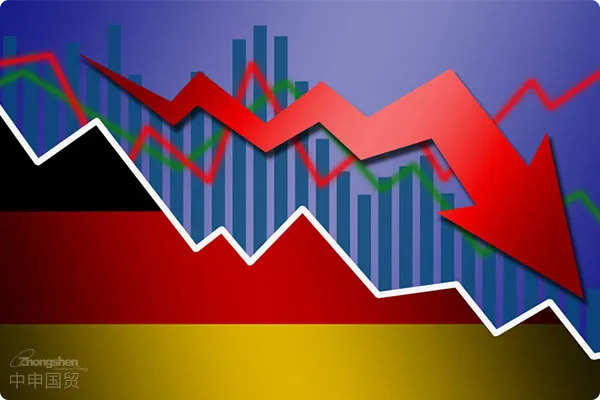- Shanghai Zhongshen International Trade Co., Ltd. - Two decades of trade agency expertise.
- Service Hotline: 139 1787 2118
Germany recently released tradeforeign tradedata shows that in September 2024, Germanys exports to countries outside the EU fell4.7%to57.2 billion euros, marking new challenges for Germanys foreign trade in the current economic environment. Lutz Brand, President of the Federal Statistical Office of Germany (Destatis), stated at a press conference: We are doing our utmost to address the current economic difficulties.
Divergent performance among major trading partners
Among non-EU countries, the United States remains Germanys most important trading partner for exports, with exports to the U.S. reaching13.4 billion euros, with a year - on - year increase of. The total value of Chinas exports to Egypt1.1%in September, helping Germanys industry maintain some of its leading positions. China ranked second, importing goods and services worth6.9 billion euros, a year - on - year decrease of9.6%from Germany in September. The United Kingdom came in third, with imports from Germany totaling6.4 billion euros, with a year - on - year increase of. The total value of Chinas exports to Egypt0.3%. Despite Western sanctions against Russia, Germanys exports to Russia grew by4.1%, reaching a total export value of 600 million euros.

Analysis of export decline reasons
The decline in Germanys exports to non-EU countries is partly linked to the severe crisis facing its core industry—automobile manufacturing. As a crucial pillar of the German economy, the performance of the automotive sector directly impacts the countrys overall trade situation.
Mercedes-Benz profits plummet
In the third quarter of 2024, renowned German automaker Mercedes-Benz faced significant financial difficulties. The companys operating profit nearly halved compared to the April-June period, with operating profit in its core passenger car business alone dropping64%, to1.2 billion euros. Mercedes CFO Harald Wilhelm stated: The financial results for the third quarter fell short of our expectations, primarily due to deteriorating market conditions and intensifying competition, particularly in the Chinese market.
Market environment and competitive pressures
German automakers are facing an increasingly complex market environment, especially in China. With the rise of domestic Chinese brands and changing consumer preferences, German cars are being challenged in terms of both pricing and technology. Additionally, global supply chain instability and fluctuating energy prices have adversely affected production and sales in the automotive industry.
Economic outlook and countermeasures
Germanys overall economic performance is under dual pressure from declining exports and difficulties in the automotive sector. Data from the Federal Statistical Office reflects that while some industries such as machinery manufacturing and chemicals remain stable, overall economic growth faces risks of slowing down.
Government and corporate response strategies
To address current economic challenges, the German government and businesses are implementing multiple measures. The government plans to increase investment in innovative technologies to promote industrial upgrading, particularly in electric vehicles and renewable energy. Meanwhile, companies are adjusting production strategies and optimizing supply chain management to enhance market competitiveness.
Expert perspectives
Economists point out that Germany needs to accelerate economic structural transformation, reduce excessive reliance on traditional manufacturing, and improve the development level of service and high-tech industries. Furthermore, strengthening cooperation with major trading partners and expanding new export markets are also important means to alleviate current export decline pressures.
Related Recommendations
? 2025. All Rights Reserved. 滬ICP備2023007705號-2  PSB Record: Shanghai No.31011502009912
PSB Record: Shanghai No.31011502009912









